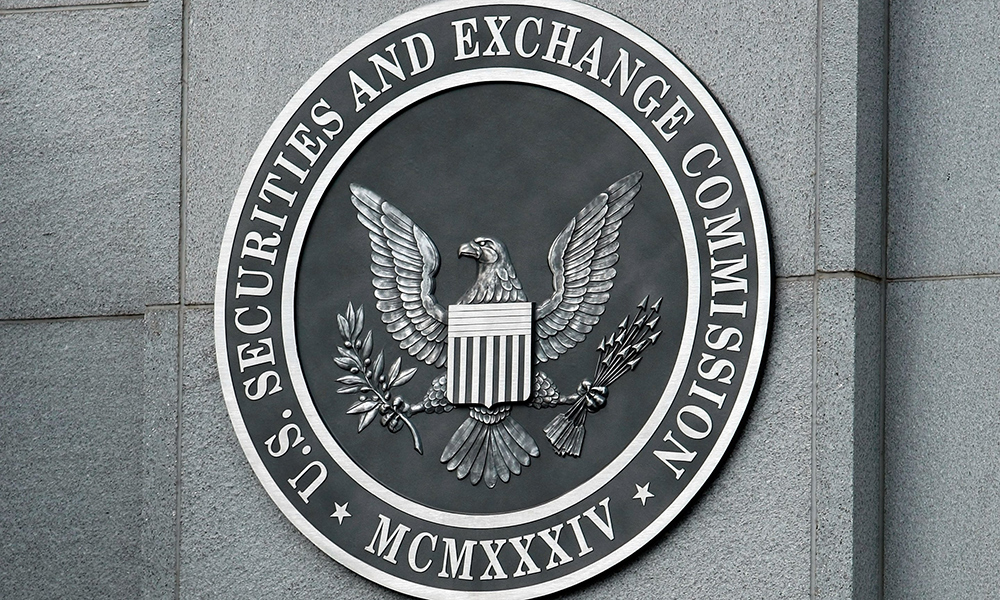
美國(guó)證券交易委員會(huì)(Securities and Exchange Commission)的成立基于透明,、公平、完全披露和穩(wěn)定監(jiān)管的原則,,會(huì)考慮其監(jiān)管對(duì)經(jīng)濟(jì)的影響和投資者的福利,。筆者在職業(yè)初期任職于證券交易委員會(huì)期間,一直努力擁護(hù)這些原則,。
但在數(shù)字資產(chǎn)方面,,美國(guó)證券交易委員會(huì)卻迷失了方向。作為幣安美國(guó)(Binance.US)的臨時(shí)CEO和Ripple的前總法律顧問,,筆者對(duì)此深有感觸,。
美國(guó)證券交易委員會(huì)試圖在沒有國(guó)會(huì)或法院授權(quán)的情況下,,越界管轄數(shù)字資產(chǎn)。它沒有與立法者和相關(guān)部門合作制定綜合監(jiān)管制度,,沒有經(jīng)過審慎的成本效益分析和公開意見征集后制定的規(guī)則,,而是以一次性執(zhí)法案例證明其管轄權(quán),卻讓美國(guó)經(jīng)濟(jì)付出沉重代價(jià),,使該機(jī)構(gòu)的可信度受到影響,。證券交易委員會(huì)不應(yīng)該以這種方式應(yīng)對(duì)新出現(xiàn)的創(chuàng)新金融工具和技術(shù)。
就連證券交易委員會(huì)委員伊蘭德·羅斯曼也曾譴責(zé)該機(jī)構(gòu)“明顯沒有向市場(chǎng)參與者說明證券法律是否適用于數(shù)字資產(chǎn)和相關(guān)交易”,。對(duì)于證券交易委員會(huì)通過執(zhí)法程序而不是規(guī)則制定過程,,對(duì)現(xiàn)有法律法規(guī)進(jìn)行重新解釋的做法,證券交易委員會(huì)委員馬克·烏耶達(dá)和赫斯特·皮爾斯也表示譴責(zé),。
在美國(guó)國(guó)會(huì),,眾議院金融服務(wù)委員會(huì)(House Financial Services Committee)委員批評(píng)證券交易委員會(huì)對(duì)加密貨幣的監(jiān)管方式,導(dǎo)致該行業(yè)“沒有清晰的規(guī)則”,。此外,,該行政部門尚未決定什么是數(shù)字資產(chǎn),而其他監(jiān)管機(jī)構(gòu)均認(rèn)為數(shù)字資產(chǎn)不屬于證券,。但證券交易委員會(huì)的現(xiàn)任領(lǐng)導(dǎo)者并沒有聽取這些意見,而是決定不開展有意義的對(duì)話或者尋找中間立場(chǎng),。
證券交易委員會(huì)現(xiàn)任主席在早前出席國(guó)會(huì)聽證會(huì)時(shí),,曾表示他領(lǐng)導(dǎo)的機(jī)構(gòu)對(duì)加密貨幣沒有監(jiān)管權(quán),并要求國(guó)會(huì)授權(quán),。但之后他卻沒有任何解釋就放棄了這種立場(chǎng),,反而聲稱最高法院80年前的一次裁定足以讓他全權(quán)監(jiān)管這個(gè)規(guī)模高達(dá)數(shù)萬億美元且有五分之一美國(guó)人參與的新行業(yè)。
證券交易委員會(huì)主席的態(tài)度令聯(lián)邦法院感到困惑,。正如美國(guó)地方法官凱瑟琳·菲爾拉所說:“我只想弄清楚,,這個(gè)行業(yè)的參與者如何知道,他們參與投資的某項(xiàng)加密貨幣資產(chǎn),,未來不會(huì)被證券交易委員會(huì)認(rèn)定為證券,。”
此外,,現(xiàn)在試圖逼迫數(shù)字資產(chǎn)實(shí)體破產(chǎn)的證券交易委員會(huì),,曾經(jīng)批準(zhǔn)了Coinbase上市。但不到18個(gè)月后,,證券交易委員會(huì)卻聲稱該公司是非法的,。這意味著證券交易委員會(huì)允許數(shù)以百萬計(jì)的投資者購買了一家非法公司價(jià)值數(shù)十億美元的股份。投資者保護(hù)呢,?幾乎不存在,。
證券交易委員會(huì)還對(duì)筆者所在的公司幣安美國(guó)和幣安(Binance. com)采取了執(zhí)法行動(dòng),,指控公司違反了證券法。美國(guó)還有其他多個(gè)監(jiān)管部門對(duì)幣安提起了訴訟,,現(xiàn)在訴訟已經(jīng)解決,。雖然其他部門提起的訴訟中并沒有提到幣安美國(guó),但我們意識(shí)到,,我們必須重新樹立客戶和監(jiān)管部門的信任,。我們強(qiáng)烈質(zhì)疑證券交易委員會(huì)的指控,我們認(rèn)為這些指控沒有成文法和事實(shí)作為依據(jù),。
幸運(yùn)的是,,證券交易委員會(huì)還有一些補(bǔ)救措施。
首先,,提供公平的通告,。在游戲?qū)嶋H開始之前,發(fā)布行業(yè)的游戲規(guī)則,。
其次,,放棄以摧毀加密貨幣為目的的所有武斷和任性的做法。現(xiàn)在,,數(shù)字資產(chǎn)行業(yè)不可能遵守現(xiàn)有法規(guī),。當(dāng)證券交易委員會(huì)的領(lǐng)導(dǎo)者可以任性修改法律時(shí),行業(yè)參與者該如何遵守法律,?
第三,,承認(rèn)數(shù)字資產(chǎn)行業(yè)是美國(guó)經(jīng)濟(jì)的重要參與者,并與國(guó)會(huì)合作設(shè)計(jì)有效的監(jiān)管框架,。
與此同時(shí),,筆者所在的公司和行業(yè)決定繼續(xù)抗?fàn)帯?shù)字資產(chǎn)帶來的好處以及為打擊數(shù)字資產(chǎn)濫用監(jiān)管權(quán)力的影響至關(guān)重要,,必須做出反抗,。同樣重要的是,美國(guó)人有反對(duì)政府越權(quán)的傳統(tǒng),。我很自豪能發(fā)揚(yáng)這個(gè)傳統(tǒng),。(財(cái)富中文網(wǎng))
本文作者諾曼·里德為幣安美國(guó)臨時(shí)CEO,之前曾擔(dān)任Omgeo有限責(zé)任公司,、Ripple,、Carta、Nanopay和Onsa的總法律顧問,,曾在證券交易委員會(huì)和紐約聯(lián)邦儲(chǔ)備銀行(Federal Reserve Bank of New York)負(fù)責(zé)市場(chǎng)監(jiān)管和執(zhí)法,。
Fortune.com上發(fā)表的評(píng)論文章中表達(dá)的觀點(diǎn),僅代表作者本人的觀點(diǎn),,不能代表《財(cái)富》雜志的觀點(diǎn)和立場(chǎng),。
譯者:劉進(jìn)龍
審校:汪皓
美國(guó)證券交易委員會(huì)(Securities and Exchange Commission)的成立基于透明,、公平、完全披露和穩(wěn)定監(jiān)管的原則,,會(huì)考慮其監(jiān)管對(duì)經(jīng)濟(jì)的影響和投資者的福利,。筆者在職業(yè)初期任職于證券交易委員會(huì)期間,一直努力擁護(hù)這些原則,。
但在數(shù)字資產(chǎn)方面,,美國(guó)證券交易委員會(huì)卻迷失了方向。作為幣安美國(guó)(Binance.US)的臨時(shí)CEO和Ripple的前總法律顧問,,筆者對(duì)此深有感觸,。
美國(guó)證券交易委員會(huì)試圖在沒有國(guó)會(huì)或法院授權(quán)的情況下,越界管轄數(shù)字資產(chǎn),。它沒有與立法者和相關(guān)部門合作制定綜合監(jiān)管制度,,沒有經(jīng)過審慎的成本效益分析和公開意見征集后制定的規(guī)則,而是以一次性執(zhí)法案例證明其管轄權(quán),,卻讓美國(guó)經(jīng)濟(jì)付出沉重代價(jià),,使該機(jī)構(gòu)的可信度受到影響。證券交易委員會(huì)不應(yīng)該以這種方式應(yīng)對(duì)新出現(xiàn)的創(chuàng)新金融工具和技術(shù),。
就連證券交易委員會(huì)委員伊蘭德·羅斯曼也曾譴責(zé)該機(jī)構(gòu)“明顯沒有向市場(chǎng)參與者說明證券法律是否適用于數(shù)字資產(chǎn)和相關(guān)交易”,。對(duì)于證券交易委員會(huì)通過執(zhí)法程序而不是規(guī)則制定過程,對(duì)現(xiàn)有法律法規(guī)進(jìn)行重新解釋的做法,,證券交易委員會(huì)委員馬克·烏耶達(dá)和赫斯特·皮爾斯也表示譴責(zé),。
在美國(guó)國(guó)會(huì),眾議院金融服務(wù)委員會(huì)(House Financial Services Committee)委員批評(píng)證券交易委員會(huì)對(duì)加密貨幣的監(jiān)管方式,,導(dǎo)致該行業(yè)“沒有清晰的規(guī)則”,。此外,,該行政部門尚未決定什么是數(shù)字資產(chǎn),,而其他監(jiān)管機(jī)構(gòu)均認(rèn)為數(shù)字資產(chǎn)不屬于證券。但證券交易委員會(huì)的現(xiàn)任領(lǐng)導(dǎo)者并沒有聽取這些意見,,而是決定不開展有意義的對(duì)話或者尋找中間立場(chǎng),。
證券交易委員會(huì)現(xiàn)任主席在早前出席國(guó)會(huì)聽證會(huì)時(shí),曾表示他領(lǐng)導(dǎo)的機(jī)構(gòu)對(duì)加密貨幣沒有監(jiān)管權(quán),,并要求國(guó)會(huì)授權(quán),。但之后他卻沒有任何解釋就放棄了這種立場(chǎng),反而聲稱最高法院80年前的一次裁定足以讓他全權(quán)監(jiān)管這個(gè)規(guī)模高達(dá)數(shù)萬億美元且有五分之一美國(guó)人參與的新行業(yè),。
證券交易委員會(huì)主席的態(tài)度令聯(lián)邦法院感到困惑,。正如美國(guó)地方法官凱瑟琳·菲爾拉所說:“我只想弄清楚,這個(gè)行業(yè)的參與者如何知道,,他們參與投資的某項(xiàng)加密貨幣資產(chǎn),,未來不會(huì)被證券交易委員會(huì)認(rèn)定為證券,。”
此外,,現(xiàn)在試圖逼迫數(shù)字資產(chǎn)實(shí)體破產(chǎn)的證券交易委員會(huì),,曾經(jīng)批準(zhǔn)了Coinbase上市。但不到18個(gè)月后,,證券交易委員會(huì)卻聲稱該公司是非法的,。這意味著證券交易委員會(huì)允許數(shù)以百萬計(jì)的投資者購買了一家非法公司價(jià)值數(shù)十億美元的股份。投資者保護(hù)呢,?幾乎不存在,。
證券交易委員會(huì)還對(duì)筆者所在的公司幣安美國(guó)和幣安(Binance. com)采取了執(zhí)法行動(dòng),指控公司違反了證券法,。美國(guó)還有其他多個(gè)監(jiān)管部門對(duì)幣安提起了訴訟,,現(xiàn)在訴訟已經(jīng)解決。雖然其他部門提起的訴訟中并沒有提到幣安美國(guó),,但我們意識(shí)到,,我們必須重新樹立客戶和監(jiān)管部門的信任。我們強(qiáng)烈質(zhì)疑證券交易委員會(huì)的指控,,我們認(rèn)為這些指控沒有成文法和事實(shí)作為依據(jù),。
幸運(yùn)的是,證券交易委員會(huì)還有一些補(bǔ)救措施,。
首先,,提供公平的通告。在游戲?qū)嶋H開始之前,,發(fā)布行業(yè)的游戲規(guī)則,。
其次,放棄以摧毀加密貨幣為目的的所有武斷和任性的做法?,F(xiàn)在,,數(shù)字資產(chǎn)行業(yè)不可能遵守現(xiàn)有法規(guī)。當(dāng)證券交易委員會(huì)的領(lǐng)導(dǎo)者可以任性修改法律時(shí),,行業(yè)參與者該如何遵守法律,?
第三,承認(rèn)數(shù)字資產(chǎn)行業(yè)是美國(guó)經(jīng)濟(jì)的重要參與者,,并與國(guó)會(huì)合作設(shè)計(jì)有效的監(jiān)管框架,。
與此同時(shí),筆者所在的公司和行業(yè)決定繼續(xù)抗?fàn)?。?shù)字資產(chǎn)帶來的好處以及為打擊數(shù)字資產(chǎn)濫用監(jiān)管權(quán)力的影響至關(guān)重要,,必須做出反抗。同樣重要的是,美國(guó)人有反對(duì)政府越權(quán)的傳統(tǒng),。我很自豪能發(fā)揚(yáng)這個(gè)傳統(tǒng),。(財(cái)富中文網(wǎng))
本文作者諾曼·里德為幣安美國(guó)臨時(shí)CEO,之前曾擔(dān)任Omgeo有限責(zé)任公司,、Ripple,、Carta、Nanopay和Onsa的總法律顧問,,曾在證券交易委員會(huì)和紐約聯(lián)邦儲(chǔ)備銀行(Federal Reserve Bank of New York)負(fù)責(zé)市場(chǎng)監(jiān)管和執(zhí)法,。
Fortune.com上發(fā)表的評(píng)論文章中表達(dá)的觀點(diǎn),僅代表作者本人的觀點(diǎn),,不能代表《財(cái)富》雜志的觀點(diǎn)和立場(chǎng),。
譯者:劉進(jìn)龍
審校:汪皓
The Securities and Exchange Commission was founded on principles of transparency, fairness, full disclosure, and stable regulation, taking into account the economic impact of its regulations and the well-being of investors. It is these principles that I sought to uphold during my tenure at the SEC earlier in my career.
Yet with regard to digital assets, the SEC has lost its way. This has become clear to me in my current role as interim CEO of Binance.US and through my prior experience as general counsel of Ripple.
The SEC is attempting a jurisdictional land grab of digital assets when no such thing has been authorized by Congress or by the courts. Instead of working with legislators and agencies to put in place a comprehensive regulatory scheme—rules adopted after prudent cost-benefit analyses and public comments—the SEC is bringing one-off enforcement cases to mark its territory at tremendous cost to the U.S. economy and the agency’s credibility. This is not the way the SEC should be addressing new, innovative financial instruments and technologies.
Even SEC Commissioner Elad Roisman has decried the “decided lack of clarity for market participants around the application of securities laws to digital assets and their trading.” And SEC Commissioners Mark Uyeda and Hester Perice have condemned the development of new interpretations of existing statutes and rules through the enforcement process rather than rulemaking.
In Congress, members of the House Financial Services Committee have criticized the SEC’s approach to crypto as leaving the industry “without clear rules of the road.” Elsewhere, the executive branch has not yet decided what digital assets are, and other regulators all characterize digital assets as something other than securities. But instead of listening, current SEC leadership has determined not to engage in meaningful dialogue or find a middle ground.
In his early hearings before Congress, the current SEC chairman himself stated that his agency didn’t have the power to regulate crypto, and he asked Congress to provide that power. Since then, he’s abandoned that position without any kind of explanation, and has made the claim that language in an 80-year-old Supreme Court decision is enough for him to entirely regulate a new industry valued in the trillions of dollars and in which 1 in 5 Americans has participated.
The chairman’s approach has baffled federal courts. As U.S. District Judge Katherine Failla stated: “I am just trying to figure out how folks involved in the industry can know that a particular crypto asset with which they are involved is not going to be found at some later date by the Commission to be a security.”
Moreover, the same SEC that now attempts to drive digital assets entities out of business gave express permission to Coinbase to go public. Yet less than 18 months later, the SEC alleges that that very same business is illegal. That means the SEC allowed millions of investors to purchase billions of dollars of shares in an illegal business. Investor protection? Hardly.
The SEC has also brought an enforcement action against my company, Binance.US, as well as Binance.com for alleged violations of securities laws. Separately, multiple other U.S.-based regulators also brought lawsuits against Binance.com that it’s now resolved. While Binance.US was not named in these other actions, we recognize we must work to reestablish the trust of our customers and regulators. We are vehemently disputing the SEC’s charges, however, which we believe are not supported by settled law or the facts of this case.
Fortunately, there are remedies to which the SEC can turn.
First, provide fair notice. Give the industry the rules of the game before the game actually begins.
Second, abandon all arbitrary and capricious efforts to kill crypto. Today, it is impossible for the digital asset industry to comply with current regulations. How are industry participants to follow the law if it changes on the whims of the SEC’s leadership?
Third, recognize that the digital asset industry is a major player in the American economy and work with Congress to design effective regulatory framework.
In the meantime, my company and industry are determined to continue the fight. The benefits provided by digital assets, and the impact of the regulatory abuses used against them, are too important not to address head on. Equally important is the American tradition of standing up to government overreach. I proudly count myself as part of that tradition.
Norman Reed, interim CEO of Binance.US, previously served as general counsel at Omgeo LLC, Ripple, Carta, Nanopay, and Onsa, having earlier worked in market regulation and enforcement at the SEC and at the Federal Reserve Bank of New York.
The opinions expressed in Fortune.com commentary pieces are solely the views of their authors and do not necessarily reflect the opinions and beliefs of Fortune.






